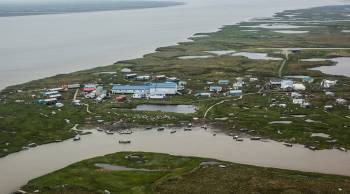If you just hear the news that pirates hijacked an American ship and took the captain hostage, maybe it’s natural to shout, “Off with their heads!” Or if you just read that the Somali pirates are fisherman fighting for their food supply, it’s easy to have some sympathy. But of course, it’s more complicated than that.
Many of the Somali ship raiders are fisherman, and Western ships have been looting seafood off the Somali coast. In the past, European ships also reportedly dumped toxic waste into the seas there. London Independent columnist Johann Hari wrote this for the Huffington Post recently:
Did we expect starving Somalians to stand passively on their beaches, paddling in our nuclear waste, and watch us snatch their fish to eat in restaurants in London and Paris and Rome? We didn’t act on those crimes – but when some of the fishermen responded by disrupting the transit-corridor for 20 percent of the world’s oil supply, we begin to shriek about “evil.”
On the other hand, it’s clear these pirates have become much more sophisticated. Nikolas Gvosdev, a professor of security studies at the US Naval War College makes this point in a New York Times blog debating the issue:
We need to stop thinking about Somali pirates as simple fishermen with AK-47s… With reports that 20 percent of all ransom money received is reinvested by the pirate groups into better boats, G.P.S. systems, satellite phones and payments to informants working in the Middle East, Somali pirates are able to both evade the multinational naval task forces operating in the area and find new targets.
Gvosdev says governments and companies have to do something other than just pay the ransoms. Otherwise, the piracy will never end. Freakonomics says “even a $2 million ransom can be cheaper for shipowners than worrying about delayed or spoiled cargo. It’s also cheaper than paying to outfit an entire shipping line with private security guards or sending the ships along longer, pirate-free routes.”
The recession is complicating things even more:
…with shippers cutting costs, they may be less willing to pay the million-dollar ransoms that pirates have become accustomed to. That could discourage some pirates, Lehr says — or, conversely, drive up attacks, as the marauders hit more ships to make up for slumping revenue.
Gvosdev suggests foreign naval forces might work together to help protect Somali fisherman from seafood raiding and piracy. And that the international community deal directly with the “self-proclaimed” governments in Somaliland and Puntland, rather than simply hoping that a central government will be rebuilt.
The health of global trade is at stake here, and Marketplace PM has more on that.
What’s your solution?
There’s a lot happening in the world. Through it all, Marketplace is here for you.
You rely on Marketplace to break down the world’s events and tell you how it affects you in a fact-based, approachable way. We rely on your financial support to keep making that possible.
Your donation today powers the independent journalism that you rely on. For just $5/month, you can help sustain Marketplace so we can keep reporting on the things that matter to you.


















